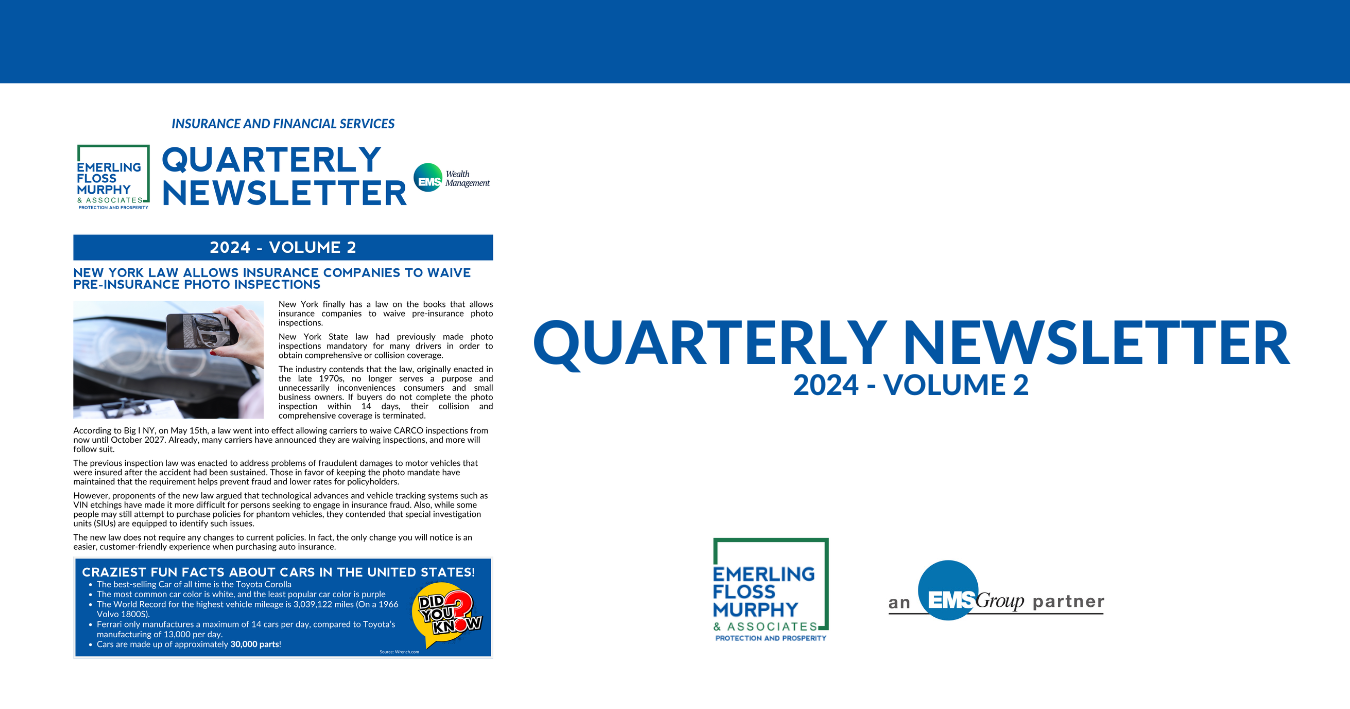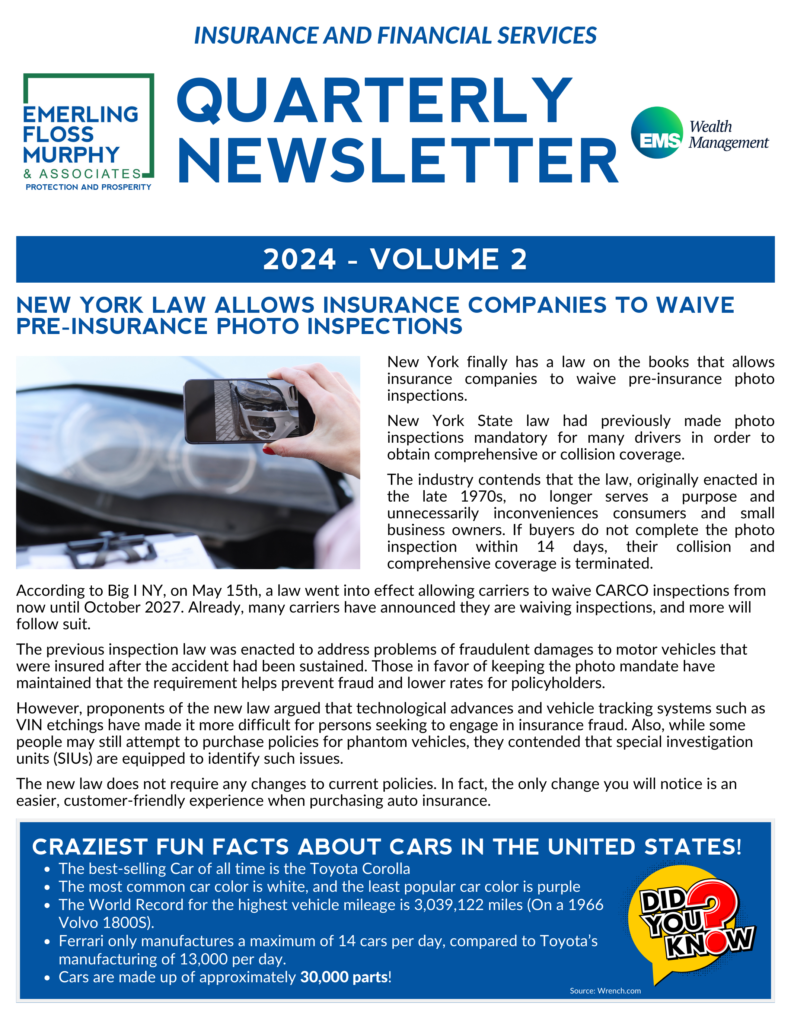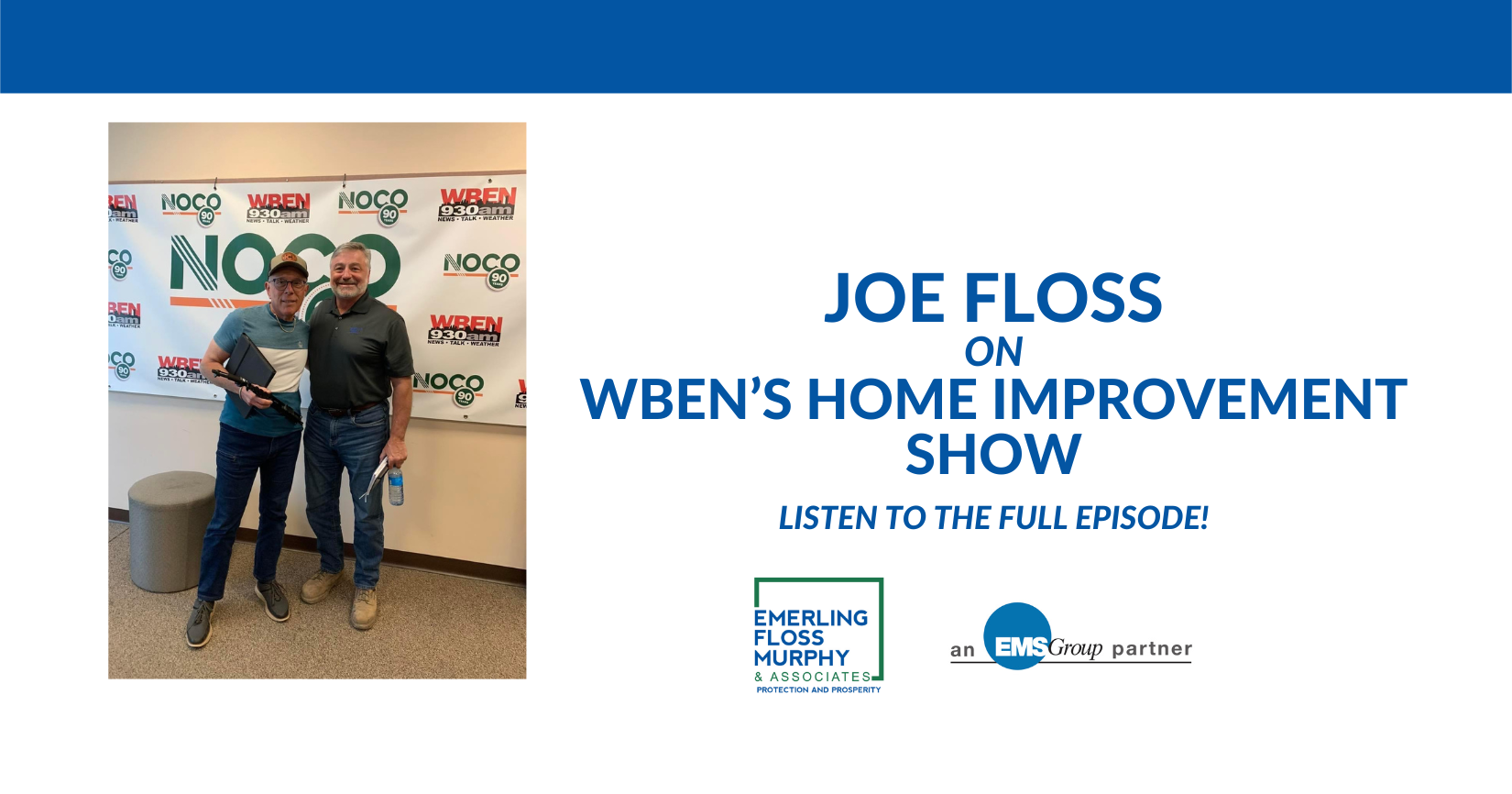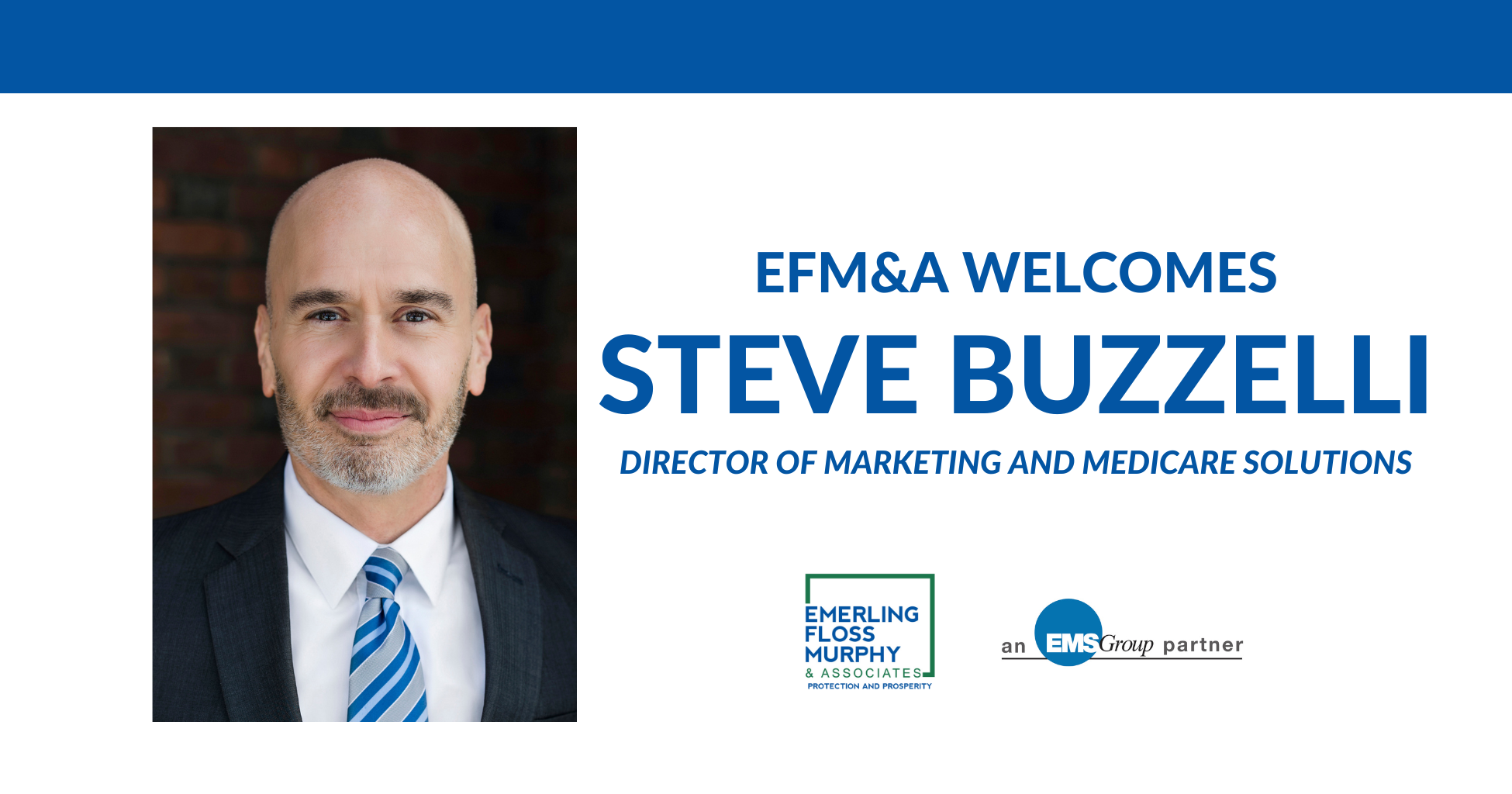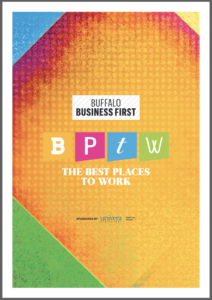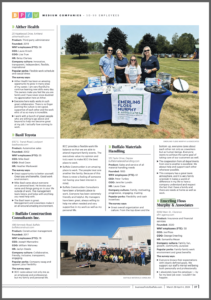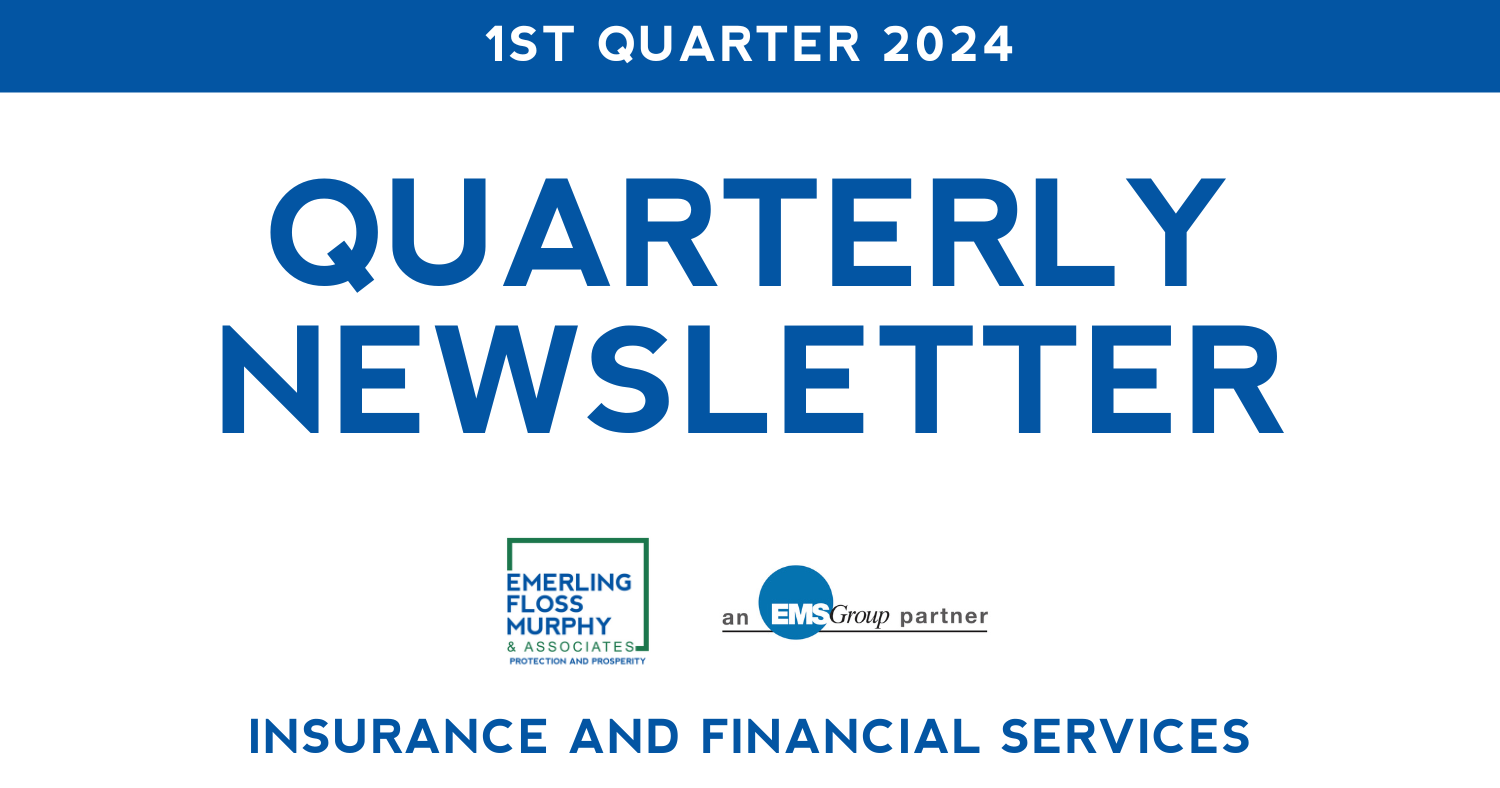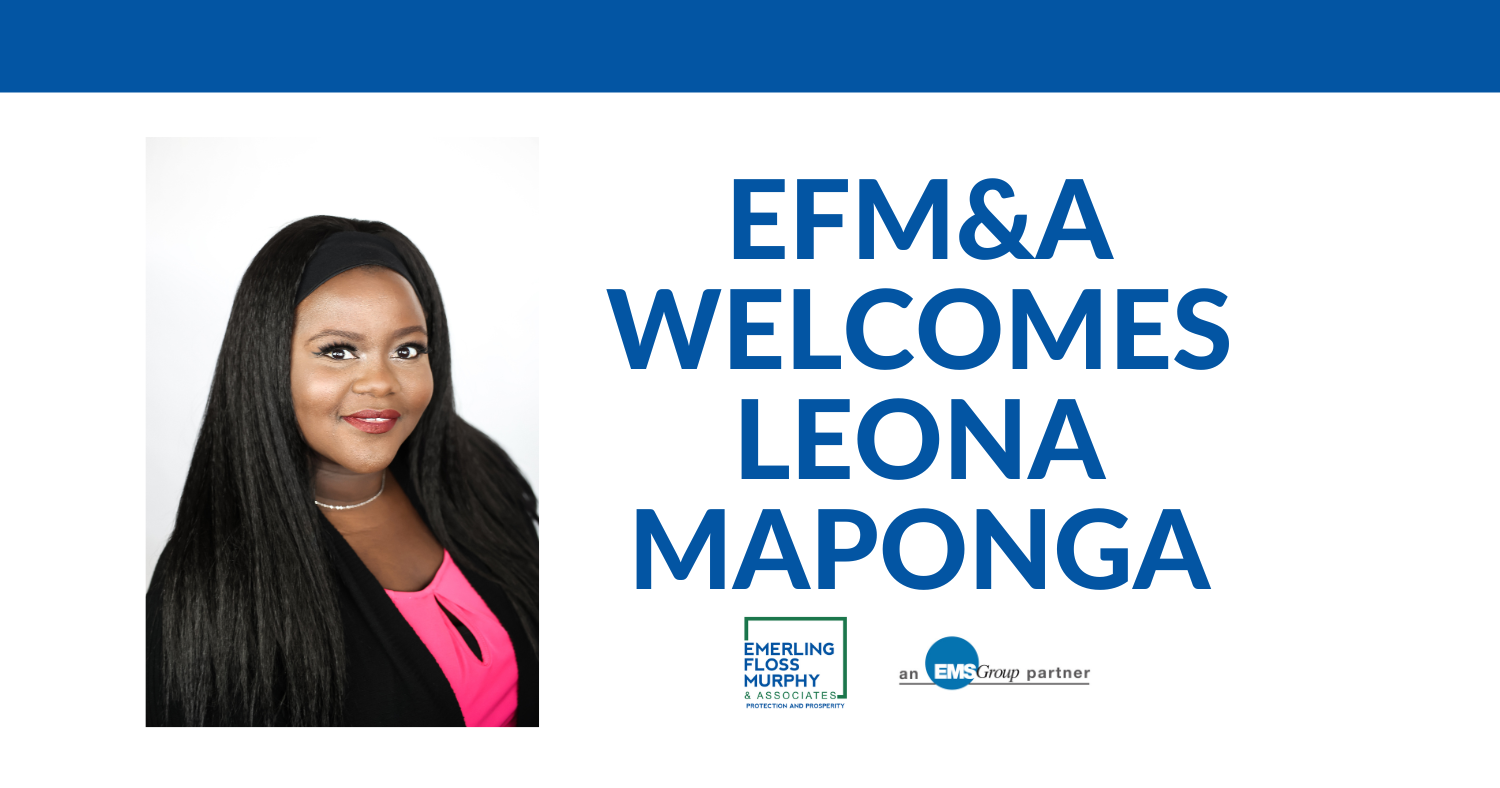Joe Floss Featured on WBEN Home Improvement Show
EFM&A President Joe Floss was the featured guest for the full hour of WBEN’s Home Improvement Show, hosted by Domenic Cortese.
A wide variety of topics were covered – and Joe was happy to answer questions from listeners!
Click the link below to listen to the full episode!
EFM&A Welcomes Steve Buzzelli
EFM&A proudly announces the appointment of Steven Buzzelli as the Director of Marketing and Medicare Solutions. With a robust background spanning marketing, business development, and expertise in Medicare solutions, Buzzelli brings a wealth of knowledge to his new role.
Steven Buzzelli holds a Bachelor of Science in Health & Fitness from Springfield College, complemented by an MBA from Canisius College. His journey into healthcare and marketing began with notable time at renowned companies such as Northwestern Mutual, BlueCross BlueShield, and Fisher-Price.
In his most recent endeavor, Buzzelli’s role as Director of Marketing and Medicare Solutions at EFM&A commenced in March 2024.
Throughout his career, Buzzelli has established significant partnerships and achieved organizational goals. Notably, he forged a successful collaboration with the Jacobs School of Medicine and Biomedical Sciences, providing financial education to medical students.
Beyond his professional achievements, Buzzelli is deeply committed to community service. He serves on the Board of Directors of several local organizations. He has been recognized for his philanthropic endeavors, including being named the East Aurora Boys & Girls Club Man of the Year and co-chairing United Way’s Day of Caring for Western New York.
“Joining EFM&A is an exciting opportunity to continue my passion for marketing and contribute to the company’s success,” said Steven Buzzelli. “I look forward to leveraging my experience and skills to drive growth and provide exceptional Medicare solutions for our clients and the community.”
Steven Buzzelli resides in East Aurora, New York, with his wife Anne, where they have raised their children.
His dedication to both professional excellence and community enrichment embodies the values that EFM&A stands for.
EFM&A Named 2024 Best Places to Work
 Emerling Floss Murphy & Associates has been named one of the Best Places to Work in Western New York by Buffalo Business First. This is our 4th consecutive year receiving this honor, and also the highest ranking we have received in company history.
Emerling Floss Murphy & Associates has been named one of the Best Places to Work in Western New York by Buffalo Business First. This is our 4th consecutive year receiving this honor, and also the highest ranking we have received in company history.
This is an honor we take seriously at EFM&A because we believe that providing a positive work culture attracting strong talent from the industry while maintaining strong customer service will directly impact the client experience.
Here’s how it works:
- Employees are asked to complete the employee engagement survey, which was developed in 2003 by Quantum Workplace, leaders in the field of employee engagement.
- The survey measures six key engagement categories: communication, employee needs, manager effectiveness, personal engagement, team dynamic, and trust in leadership.
- Companies are ranked according to their overall score.
- The total number of survey responses is factored into the overall score. Winners are chosen 100% based on the results of the survey. That means only the employees determine the score.
Fix a Leak Weak
The United States Environmental Protection Agency has announced that March 18th – 24th is “Fix a Leak Week.” As your insurance agency, we find this a good time to remind you that finding and fixing those leaks not only helps the environment but also can help you financially and prevent serious damage to your home or business.
The average household’s leaks can account for nearly 10,000 gallons of water wasted annually; ten percent of homes have leaks that waste 90 gallons or more daily. Common types of leaks found in the house are worn toilet flappers, dripping faucets, and other leaking valves. These types of leaks are often easy to fix, requiring only a few tools and hardware that can pay for themselves in water savings. Fixing easily corrected household water leaks can save homeowners about 10 percent on their water bills.
To check for leaks in your home, you first need to determine whether you’re wasting water and then identify the source of the leak.
Here are some tips for finding leaks:
- Take a look at your water usage during a colder month, such as January or February. If a family of four exceeds 12,000 gallons per month, there are serious leaks.
- Check your water meter before and after a two-hour period when no water is being used. If the meter changes at all, you probably have a leak.
- Identify toilet leaks by placing a drop of food coloring in the toilet tank. If any color shows up in the bowl after 10 minutes, you have a leak. (Be sure to flush immediately after the experiment to avoid staining the tank.)
- Examine faucet gaskets and pipe fittings for any water on the outside of the pipe to check for surface leaks.
Leaks can run, but they can’t hide!
Any and all things that connect to water could have the potential to leak!
Showerheads
Toilets
Bathtubs
Appliances
Outdoor Water Areas
Car Insurance Day
February 1st is Car Insurance Day – a day where we celebrate the importance of car insurance!
This day also serves as a reminder for motorists to review and ensure the adequacy of their auto insurance policies. Whether it’s protecting against accidents, theft, or unforeseen circumstances, car insurance plays a crucial role in providing financial security and peace of mind on the road.
Car Insurance Fun Facts:
Car Insurance is Mandatory in Most States
In the U.S., most states require drivers to have auto liability insurance before they can legally drive a car.
Your Credit Score Can Impact Your Premium
Many insurers use credit information to price auto insurance policies. Research shows that those who effectively manage their credit have fewer claims.
Your Vehicle Model Affects Your Insurance Cost
Your vehicle’s make, model, and year can heavily impact your car insurance rates. Cars that are often stolen or expensive to repair might have higher insurance costs.
You Can Get Discounts for Safe Driving
Many car insurance companies offer discounts if you prove to be a safe driver over a certain period. These rewards can significantly lower your premium. CLICK HERE to sign up for a defensive driving course today!
Car Insurance Covers More Than Just Collision
Besides collisions, car insurance policies can cover various issues, such as damage from weather events, theft, and personal injury, depending on the type of policy purchased.
Car Insurance Checklist:
Below are some things to consider regarding your Auto Insurance. Please contact your EFM Agency Account Manager if you have any questions about your current program.
Coverage Types and Limits:
- Assess whether your current coverage aligns with your needs and financial situation.
- Confirm the policy limits for each type of coverage.
Deductibles:
- Review and understand the deductibles associated with each coverage type.
- Evaluate whether you can comfortably afford the chosen deductibles in the event of a claim.
Discounts:
- Confirm that you are taking advantage of all eligible discounts.
- Signup online for the NYS Defensive Driving Courses!
Policy Exclusions and Limitations:
- Familiarize yourself with any exclusions or limitations in your policy.
- Understand circumstances where your coverage may not apply.
Claims Process:
- Understand the process for filing a claim with your carrier. You can also file a claim through our website.
Policy Renewal Terms:
- Review the terms and conditions for policy renewal.
- Be aware of any changes in coverage or premium rates.
Vehicle Changes:
- Update the insurer if there are changes to your vehicle (e.g., modifications, additional safety features).
- Confirm that your policy reflects accurate information about your car.
Driving Record:
- Periodically check your driving record for accuracy.
- Be aware of how any changes to your driving history may impact your premiums.
Emergency Roadside Assistance:
- Verify whether your policy includes emergency roadside assistance.
- Understand the extent of the coverage and any associated costs.
Policy Documents:
- Keep a copy of your insurance policy documents.
- Review the terms and conditions to stay informed about your coverage.
Winter Winds, Snow, and your Insurance!

Jill Grucza, Personal Lines Team Lead
From high winds to snowstorms, the mild winter we started with is a thing of the past.
Knowing what to do if these weather events damage your house or car is important.
The priority is to ensure that you and your family are safe. This includes being safe during and immediately after the storm and handling any damage that may affect your safety.
When the storms have died down, you will want to assess the damage as soon as it is safely possible. Take pictures as soon as possible, and call your agent to discuss a possible claim. They will go over your coverage and deductible to determine if that is the best route.
Once you have talked to your agent, you can take care of any repairs that require attention.
If, for instance, a pipe is dripping water into your home, you don’t have to wait until a contractor shows up to address the problem. If you clearly understand the steps to take with your insurance company, you can make emergency repairs without the risk of losing insurance coverage. As you make repairs, be sure to document all your expenses. Anything you buy to fix the problem will likely be covered as part of your claim.
Homeowners insurance can cover damage to your home and other structures on your property caused by fallen trees, branches, and limbs if a tree falls on your house. This includes coverage for damage caused by a neighbor’s tree falling on your property, although your neighbor’s insurance may pay for the damage instead if the tree fell due to negligence on their part.
If a tree falls on your car, your auto insurance will pay for the damages if you carry comprehensive coverage on that vehicle.
If you have any further questions or concerns, never hesitate to contact your representative at Emerling Floss Murphy & Associates. We are here to help!
JILL GRUCZA, CIC
PERSONAL LINES TEAM LEAD
EFM&A Welcomes Leona Maponga

EFM&A is pleased to introduce you to Leona Maponga, one of our many talented Personal Lines Account Managers.
Before joining EFM&A, Leona worked for AAA since 2018. She began in dispatch and then was promoted to the insurance department after obtaining a Property and Casualty & Broker license through Bryant & Stratton College.
Leona was born in Zimbabwe and is the oldest of six siblings. She loves her big family activities and loves a broad genre of music. Before working in the insurance industry, she worked as a Nursing Assistant from 2010-2018, including work in Hospice Care.
She looks forward to assisting clients by providing quality care and attention.
Be Smart About Smart Toys
Smart toys are a popular, fun way for kids to learn and be entertained! By 2027, the smart toy market is expected to be over $24 billion!
But smart toys that collect personal data could expose you to identity theft if the information isn’t kept secure.
Below are some things to keep in mind, especially as your family might give or receive smart toys this holiday season!
1. Tech Talk
Know what technology the toy has, such as:
- A microphone
- A speaker
- Internet and Bluetooth® connections
- A pairable mobile app
…and ask yourself what the toy does. For example, does it:
- Use artificial intelligence to recognize, listen to, and talk to your child?
- Record and store conversations?
- Take photos?
2. It’s Personal
Consider what personal data the toy can access, such as:
- Email accounts
- Social media accounts
- Credit card information
3. Smart Sleuthing
If you have doubts about the toy’s safety, research online. Also, search for any concerns from consumer watchdog and safe harbor groups.
Additional Tips to Remember
Identity theft can be financially devastating and challenging to resolve. Although there are preventative steps you can take, even the most careful planning can’t eliminate the threat of identity theft. Consider Identity Theft Recovery coverage. Identity theft insurance is a type of insurance policy that provides financial protection for victims of identity theft.

